
Kerak: A Fortress of History and Culture in Jordan
Nestled in the heart of Jordan, Kerak is a city that offers a captivating blend of history, culture, and stunning landscapes. Known for its magnificent Crusader castle, Kerak Castle, the city stands as a testament to medieval architecture and the strategic significance of the region throughout history. The castle, perched on a hilltop, provides panoramic views of the surrounding valleys and is a must-visit for history enthusiasts and adventure seekers alike. Kerak is not just about its castle; the city is rich with cultural experiences. Wander through its bustling markets and narrow streets to get a sense of local life. The markets are filled with vibrant colors, the aroma of spices, and the sounds of traders selling their wares, offering a sensory experience that transports you back in time. The city's location also makes it a gateway to some of Jordan's most stunning natural landscapes. From here, you can easily explore the nearby Wadi Mujib, often referred to as the 'Grand Canyon of Jordan,' where hiking and canyoning adventures await. Additionally, the Dead Sea is within a short drive, offering a unique experience of floating in its mineral-rich waters. Whether you're a history buff, a nature lover, or someone looking to immerse yourself in local culture, Kerak has something to offer. Its blend of ancient wonders and natural beauty makes it a unique destination that should not be missed on any trip to Jordan.
Local tips in Kerak
- Visit Kerak Castle early in the morning to avoid crowds and enjoy the best light for photography.
- Wear comfortable shoes, as exploring the castle and city involves a lot of walking on uneven surfaces.
- Try the local cuisine at one of the traditional restaurants. Mansaf, Jordan's national dish, is a must-try.
- Bring a hat and sunscreen, especially during the summer months, as the sun can be very intense.
- Plan a day trip to Wadi Mujib for an adventurous hike or canyoning experience.
- Carry cash, as many local shops and markets may not accept credit cards.
Kerak: A Fortress of History and Culture in Jordan
Nestled in the heart of Jordan, Kerak is a city that offers a captivating blend of history, culture, and stunning landscapes. Known for its magnificent Crusader castle, Kerak Castle, the city stands as a testament to medieval architecture and the strategic significance of the region throughout history. The castle, perched on a hilltop, provides panoramic views of the surrounding valleys and is a must-visit for history enthusiasts and adventure seekers alike. Kerak is not just about its castle; the city is rich with cultural experiences. Wander through its bustling markets and narrow streets to get a sense of local life. The markets are filled with vibrant colors, the aroma of spices, and the sounds of traders selling their wares, offering a sensory experience that transports you back in time. The city's location also makes it a gateway to some of Jordan's most stunning natural landscapes. From here, you can easily explore the nearby Wadi Mujib, often referred to as the 'Grand Canyon of Jordan,' where hiking and canyoning adventures await. Additionally, the Dead Sea is within a short drive, offering a unique experience of floating in its mineral-rich waters. Whether you're a history buff, a nature lover, or someone looking to immerse yourself in local culture, Kerak has something to offer. Its blend of ancient wonders and natural beauty makes it a unique destination that should not be missed on any trip to Jordan.
When is the best time to go to Kerak?
Iconic landmarks you can’t miss
Kerak Castle
Explore the historical grandeur of Kerak Castle, a medieval fortress offering stunning views and a rich tapestry of Jordanian heritage.
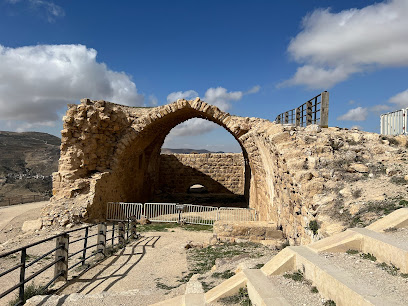
Karak Bridge Park منتزه جسر الكرك
Discover the natural beauty and cultural charm of Karak Bridge Park, a serene oasis in the heart of Kerak, Jordan.
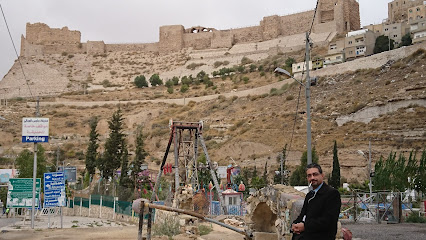
Karak Castle car parkموقف سيارات قلعة الكرك
Discover the historical marvel of Karak Castle with convenient parking at Karak Castle Car Park. Ideal for tourists seeking adventure and culture in Jordan.
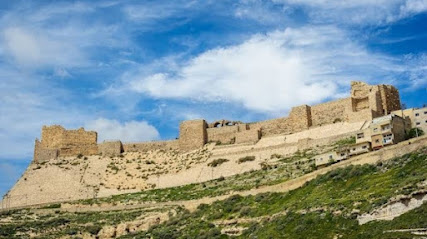
Al-Karak Castle Ticket Office
Explore the majestic Al-Karak Castle in Kerak, a historical fortress that narrates Jordan's rich medieval heritage and offers breathtaking views.
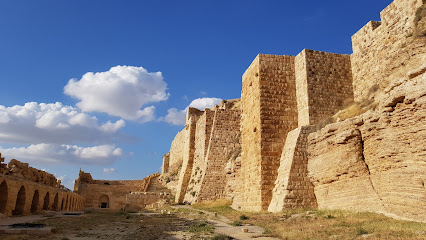
Wadi Al Karak
Discover Wadi Al Karak: A Majestic Hiking Area in Jordan with Stunning Views and Rich History.
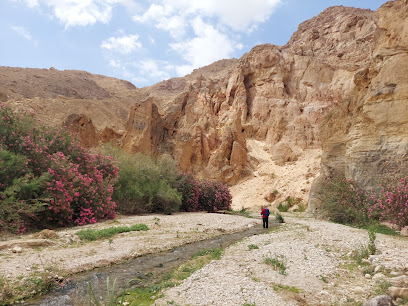
البرج المملوكي
Explore the rich heritage of Jordan at Al-Burg Al-Mamlouki, a historical landmark in Kerak that showcases stunning architecture and captivating views.
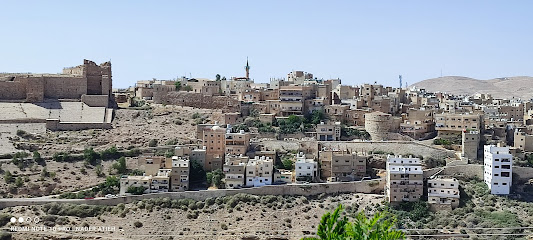
Qasr el-Juwein
Explore the rich history and stunning architecture of Qasr el-Juwein, a key landmark in Kerak, Jordan, perfect for history lovers and adventurers alike.
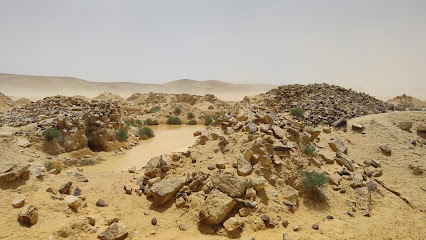
Unmissable attractions to see
Masada National Park
Discover the breathtaking beauty and rich history of Masada National Park, a UNESCO World Heritage site offering stunning views and ancient ruins.
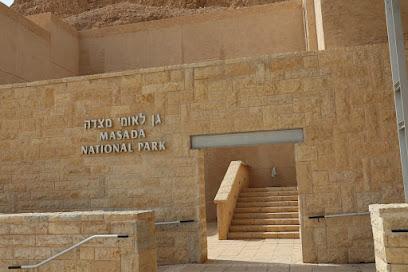
Ein Bokek beach
Experience the serene beauty of Ein Bokek Beach, where relaxation meets adventure along the stunning shores of the Dead Sea.
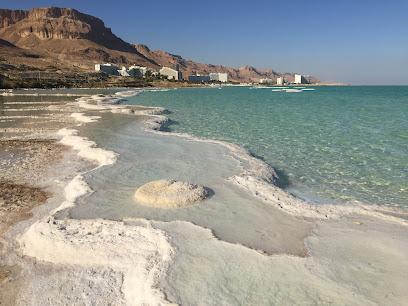
Dead Sea
Discover the Dead Sea: A unique blend of natural beauty, therapeutic waters, and rich history awaits you at this remarkable natural wonder.
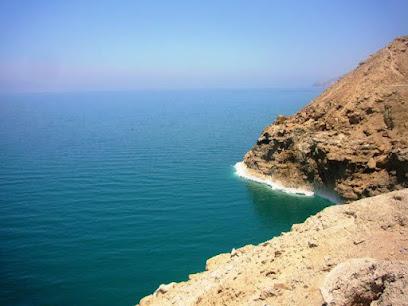
Kerak Castle
Discover the grandeur of Kerak Castle, a stunning 12th-century fortress showcasing the rich history and breathtaking landscapes of Jordan.
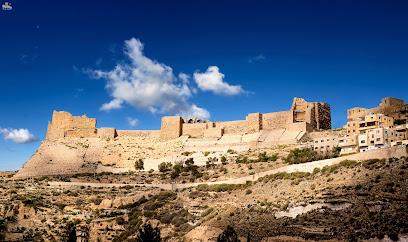
Ma'in Hot Springs
Explore the healing waters and stunning landscapes of Ma'in Hot Springs, a hidden gem in Jordan that rejuvenates both body and soul.

Visitor Center Ahava
Explore the Visitor Center Ahava in Ein Gedi, where nature meets skincare in a serene oasis by the Dead Sea.
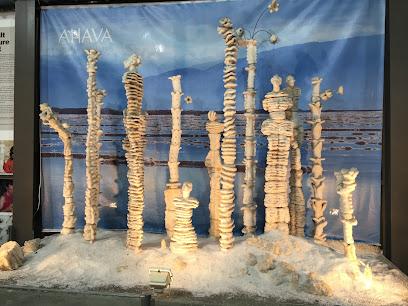
Wadi Mujib
Discover the breathtaking beauty of Wadi Mujib, a national reserve in Jordan, where adventure meets stunning natural landscapes.
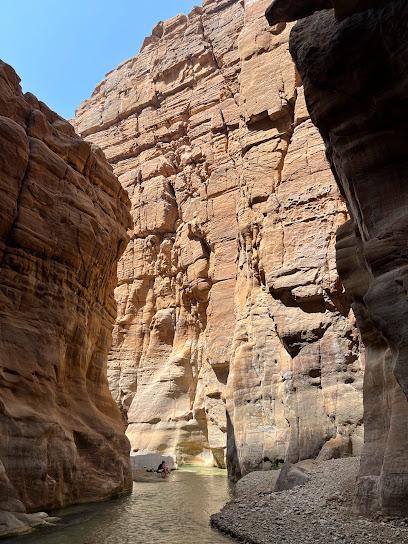
Fortress of Umm ar-Rasas (Old Roman City)
Explore the rich history and stunning mosaics of Umm ar-Rasas, a must-see UNESCO World Heritage site in Jordan.
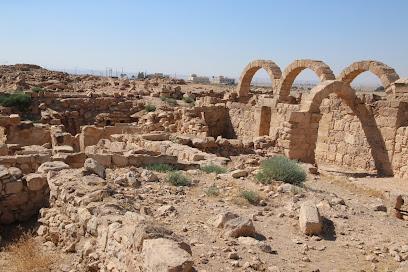
Fortress of Machaerus
Explore the historic Fortress of Machaerus in Madaba, Jordan, a site steeped in history and offering stunning views of the surrounding landscapes.
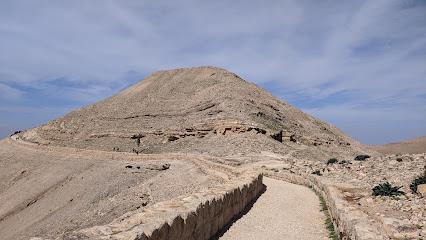
Karak Bridge Park منتزه جسر الكرك
Experience the tranquility of Karak Bridge Park, a scenic retreat in Kerak, Jordan, perfect for nature lovers and families seeking relaxation.
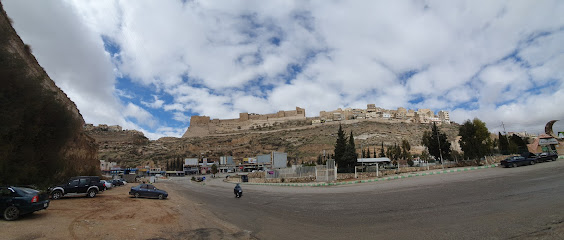
Lot's Cave
Uncover the historical marvels and breathtaking beauty of Lot's Cave in Gawr as-Safi, a captivating destination for every curious traveler.
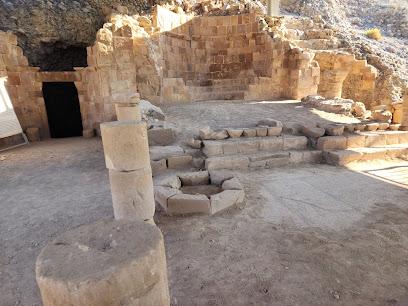
Wadi Al Hasa Hike Trail
Discover Wadi Al Hasa Hike Trail: A Stunning Jordanian Hiking Experience Surrounded by Nature's Beauty and Adventure.
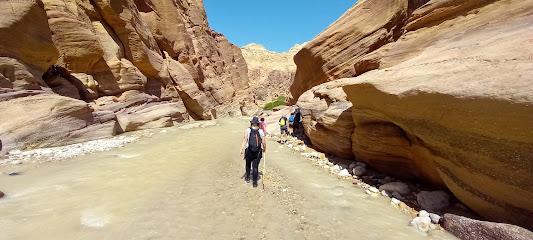
حديقة الظاهر بيبرس
Discover the lush tranquility of Al-Zaher Park in Kerak, a natural oasis perfect for relaxation, picnics, and enjoying beautiful landscapes.
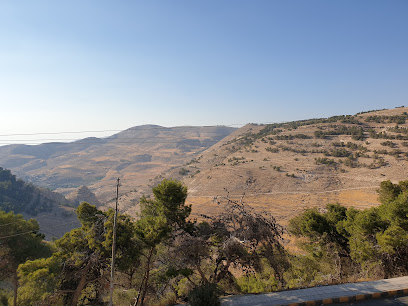
Karak Castle car parkموقف سيارات قلعة الكرك
Explore the history and beauty of Karak Castle, a stunning medieval fortress in Jordan, offering breathtaking views and rich cultural experiences.
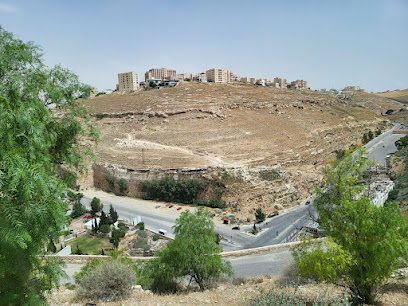
The site of the Battle of Mu'tah
Discover the rich history of the Battle of Mu'tah, a key site that shaped Jordan's past and offers breathtaking views and an immersive experience.
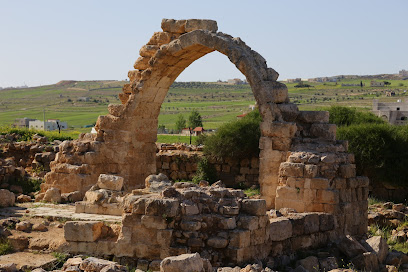
Essential places to dine
مطعم ومشاوي ليالي الكرك
Experience authentic Jordanian cuisine at مطعم ومشاوي ليالي الكرك - where tradition meets flavor in every bite.
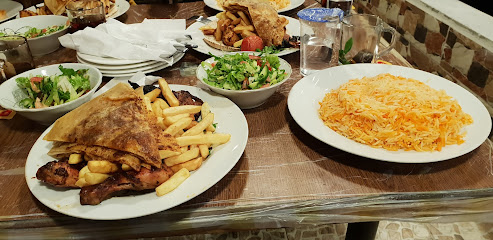
Mama Tamina Restaurants
Experience authentic Jordanian cuisine at Mama Tamina Restaurants in Kerak – where every dish tells a story.
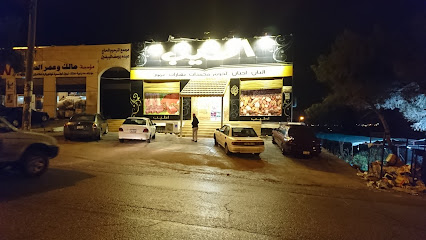
MU'AB RESTAURANT
Experience authentic Jordanian flavors at MU'AB RESTAURANT in Kerak - where tradition meets taste.
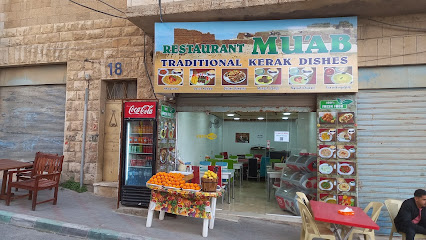
Adel Halabi Restaurant
Experience the best of Jordanian cuisine at Adel Halabi Restaurant in Kerak – where every dish tells a story.
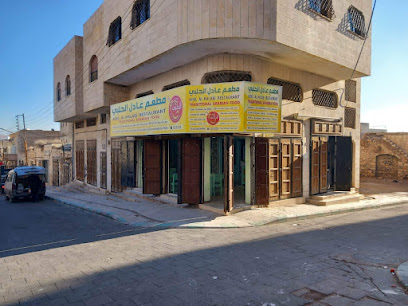
مطعم أماسينا Amasina restaurant
Experience authentic Jordanian cuisine at Amasina Restaurant in Kerak – where every meal tells a story.
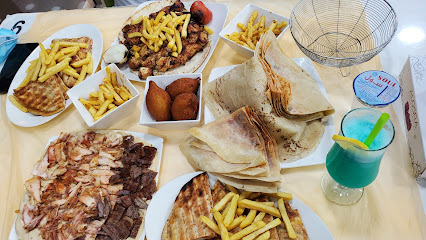
Al karak Panorama
Experience authentic Jordanian cuisine at Al Karak Panorama while enjoying stunning views of Kerak Castle.
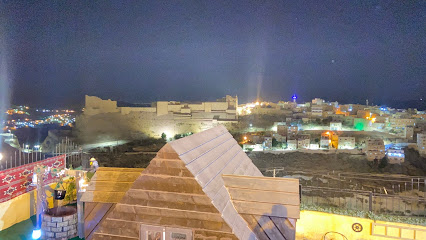
Restaurants Grand Karak Gate
Experience traditional Jordanian cuisine in the heart of historic Kerak at Restaurants Grand Karak Gate.
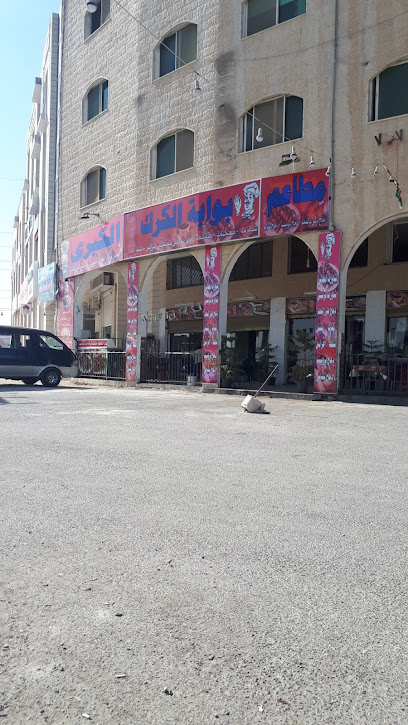
Amana Restaurant
Discover the essence of Jordanian cuisine at Amana Restaurant in Kerak – where tradition meets flavor.
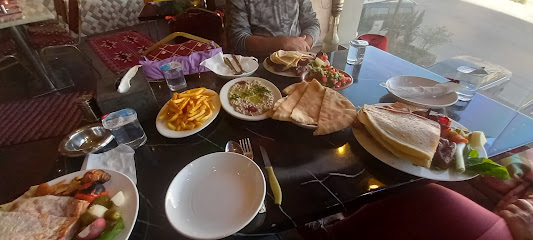
مطعم ريف الثنية
Experience authentic Jordanian flavors at مطعم ريف الثنية in Kerak - where every meal tells a story.
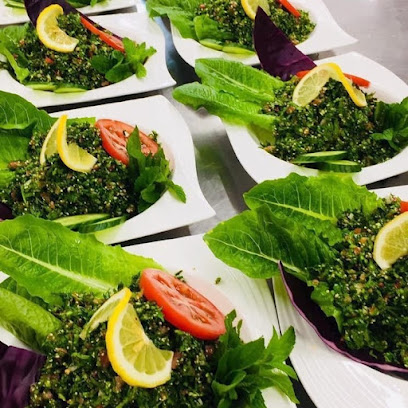
Kir Heres Restaurant
Experience authentic Jordanian cuisine in Kerak at Kir Heres Restaurant, where every dish tells a story of tradition and flavor.
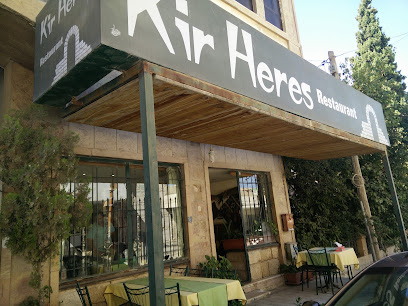
الواحة للوجبات السريعة
Experience delightful fast food at Al-Waha in Kerak – where taste meets tradition in every bite.

Saraya Castle Restaurant مطعم سرايا القلعة السياحي
Discover authentic Jordanian flavors amidst breathtaking views at Saraya Castle Restaurant in historic Kerak.
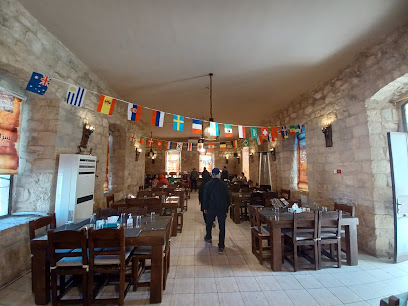
Mountain View
Discover Mountain View in Kerak: where exquisite wok dishes meet fine dining amidst breathtaking views.
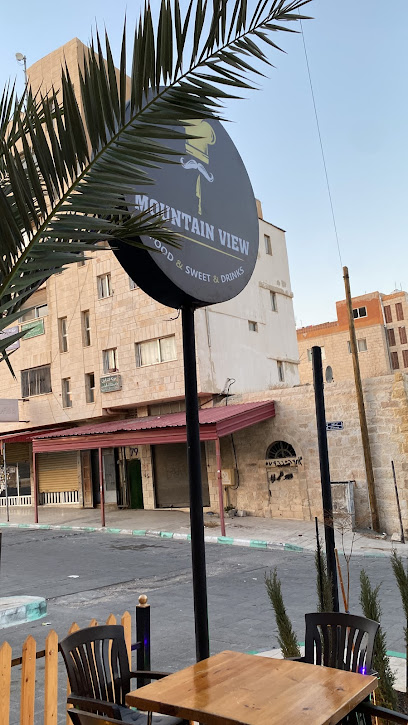
Canoe Restaurant Fish, fresh
Experience the freshest seafood in Kerak at Canoe Restaurant, where local flavors meet warm hospitality.
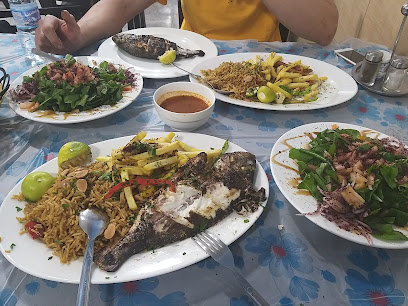
مطعم أبو العز
Experience authentic Jordanian cuisine at مطعم أبو العز in Kerak - where tradition meets flavor!
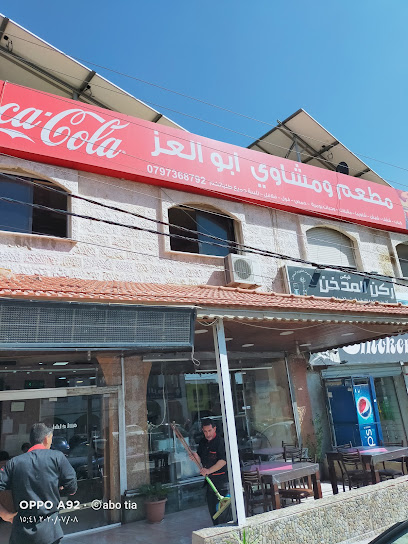
Markets, malls and hidden boutiques
Kerak Castle
Discover the historic splendor of Kerak Castle, a medieval fortress with breathtaking views and rich tales of the past in Jordan.
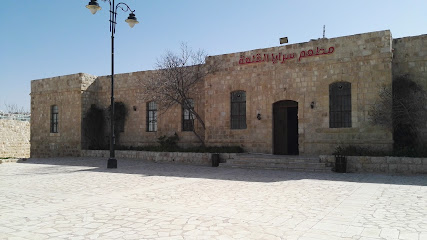
مجوهرات طارق Tareq Jewelry
Explore exquisite jewelry craftsmanship at Tareq Jewelry in Kerak, where tradition meets contemporary design in every stunning piece.
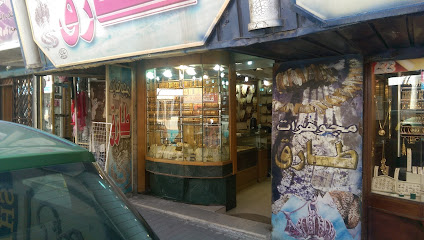
Cayffeine coffee
Explore the rich culture of Kerak while savoring expertly brewed coffee at Cayffeine Coffee, your ultimate relaxation spot in the city.
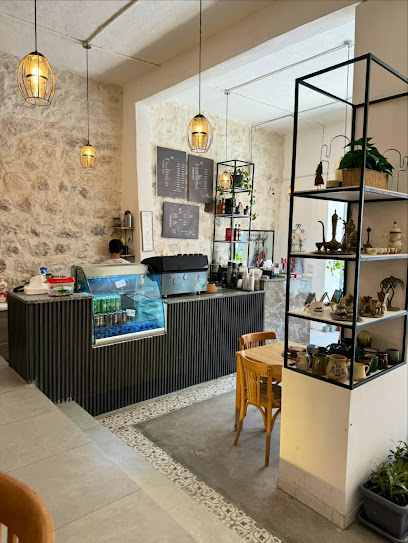
اسواق مؤته التجاريه للادوات المنزليه
Explore the vibrant اسواق مؤته التجاريه للادوات المنزليه in Kerak for unique home goods and a taste of Jordanian culture.
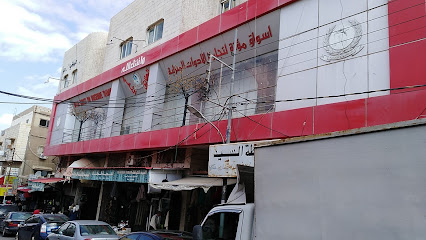
Town Bazaar
Discover unique fashion and local craftsmanship at the vibrant Town Bazaar, a must-visit shopping destination for tourists in the heart of Jordan.

سوبر ماركت صخر الحباشنه
Discover the heart of Kerak at Supertmarket Saqr Al-Habashneh, where local flavors and fresh produce await every traveler.
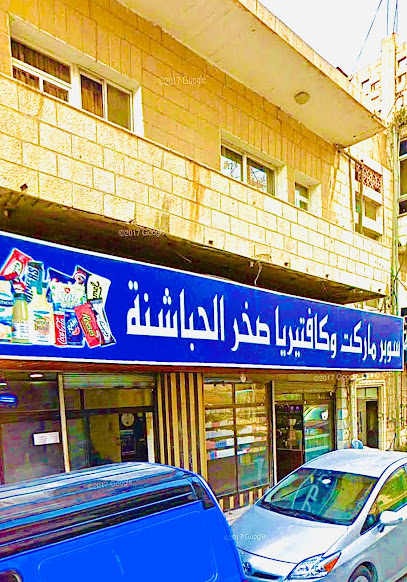
Souk Zara Souvenir and Handicraft shop
Explore Souk Zara for handcrafted souvenirs and authentic Jordanian treasures in the heart of Amman.
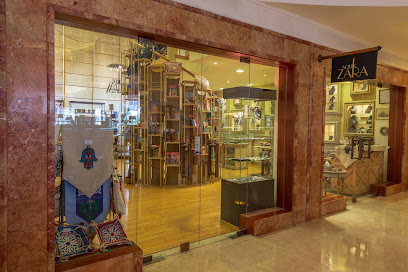
Wadi Al Karak
Discover the breathtaking beauty of Wadi Al Karak, a hiker's paradise in Jordan's stunning Kerak region, rich in history and natural wonders.
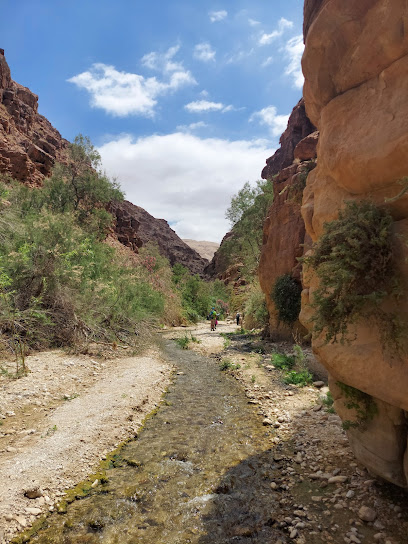
مجوهرات الكرك الختاتنه
Explore مجوهرات الكرك الختاتنه in Kerak for unique, handcrafted jewelry that beautifully reflects Jordan's rich cultural heritage.
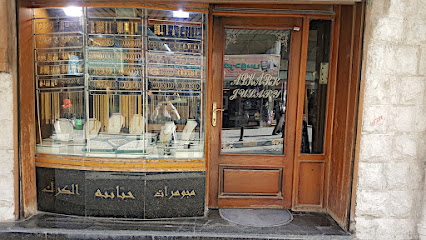
Raed coffee Best Rest
Experience the essence of Kerak at Raed Coffee Best Rest, where every cup of coffee tells a story amidst warm hospitality.
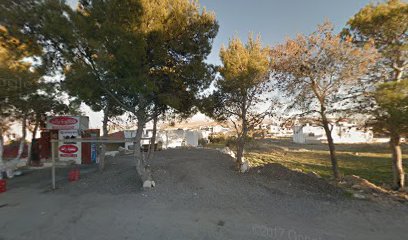
توجان سنتر
Discover the essence of local fashion at توجان سنتر, a premier clothing store in Kerak that blends tradition with modern style.
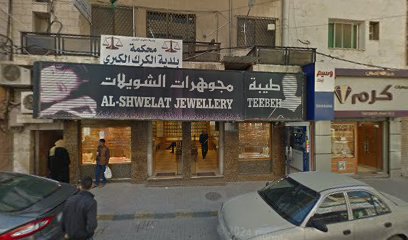
عطارة المروج/ الكرك
Explore the rich traditions of Kerak at Antara Al-Murooj, where local products and culture come together in a delightful shopping experience.
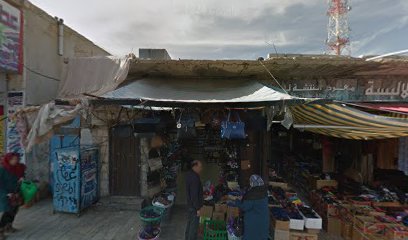
سبر ماركة زيد
Discover the flavors and vibrant shopping experience at Sabr Market, a unique supermarket in the heart of Kerak, Jordan.
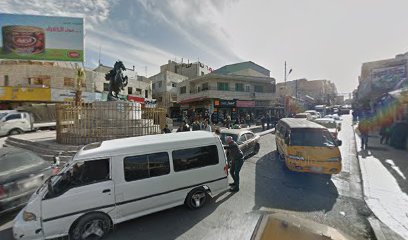
Caffe
Discover the charm of Kerak at Caffe, where exceptional coffee and local culture come together in a cozy retreat.
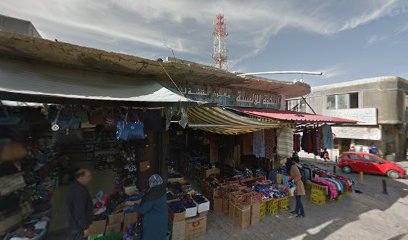
Jaber - جبر
Discover Jaber: A premier clothing store in Kerak, offering a blend of traditional and modern fashion that reflects Jordanian culture.
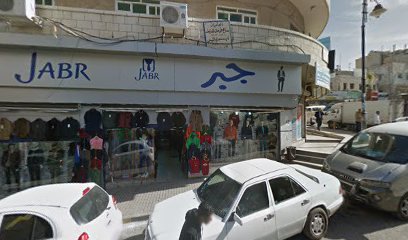
Essential bars & hidden hideouts
مطعم ومشاوي ليالي الكرك
Discover the rich flavors of Jordanian cuisine at مطعم ومشاوي ليالي الكرك, a culinary treasure in Kerak, renowned for its grilled specialties.
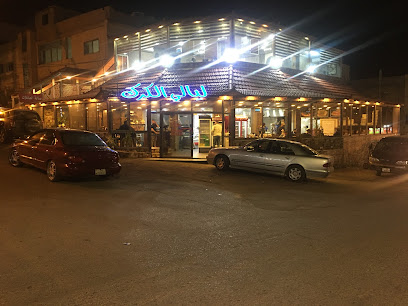
MU'AB RESTAURANT
Savor the authentic taste of Arabic cuisine at MU'AB Restaurant in Kerak, where tradition meets culinary innovation.
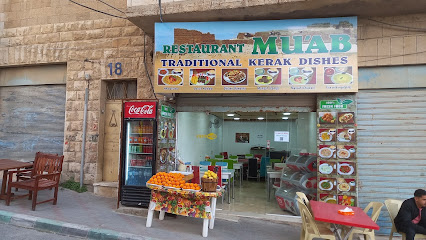
NEDAL HALASA LIQUOR STORE متجر خمور مشروبات روحية
Explore a diverse selection of quality wines, spirits, and beers at Nedal Halasa Liquor Store, the premier destination for beverage enthusiasts in Jordan.

Kir Heres Restaurant
Experience the authentic flavors of Jordan at Kir Heres Restaurant in Kerak, where traditional cuisine meets warm hospitality.
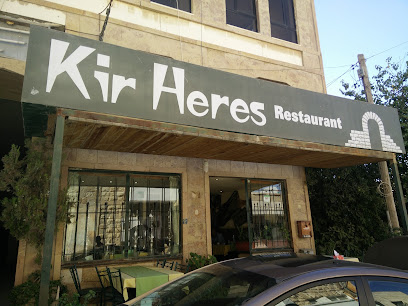
Mothela
Experience the charm of Mothela Lounge in Kerak, a perfect blend of relaxation, local flavor, and social ambiance for every traveler.
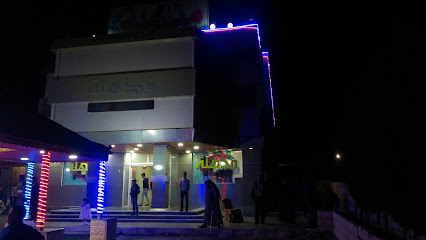
Saraya Castle Restaurant مطعم سرايا القلعة السياحي
Discover the flavors of Jordan at Saraya Castle Restaurant, where local cuisine meets breathtaking views of historical Kerak.
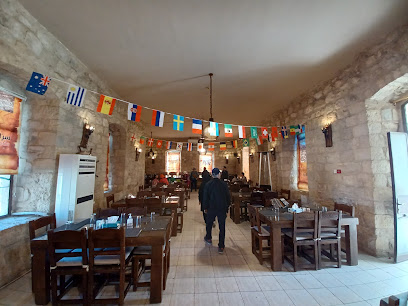
Royal Galleries
Experience the charm of Kerak at the Royal Galleries, a luxurious lounge offering a relaxing atmosphere and delightful refreshments.
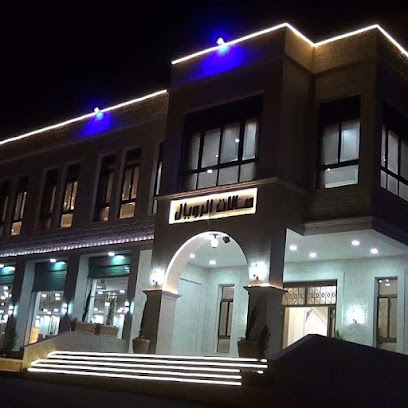
Mountain View
Discover Mountain View: A culinary haven in Kerak offering exquisite wok dishes and a blend of Arab fine dining amidst stunning vistas.
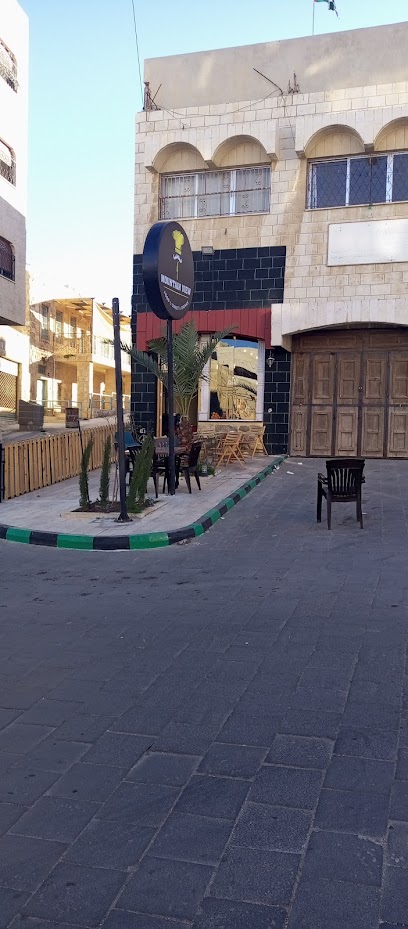
DME Burger
Discover the delicious American-style burgers at DME Burger, a must-visit dining spot in the heart of Kerak, Jordan.

صالة قصر الكرك
Discover the serene ambiance of Qasr Al-Karak Lounge in Kerak, where tradition meets relaxation and stunning views await.

معصرة بلدية عي الحديثة
Experience the refreshing taste of artisanal ciders at معصرة بلدية عي الحديثة in Kerak, where local flavor meets stunning landscapes.
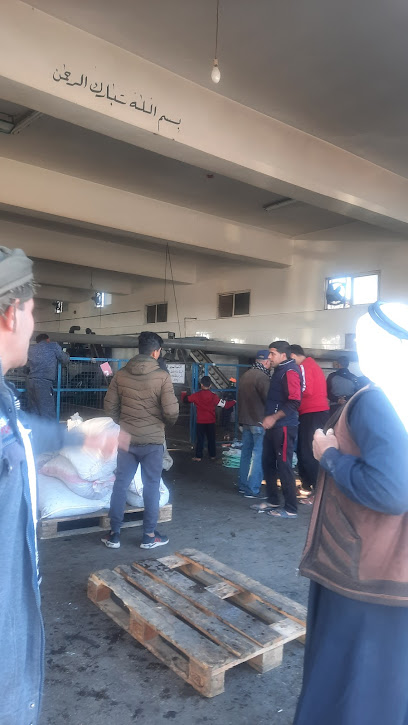
متجر مشروبات روحية samer
Experience the vibrant spirit of Kerak at Samer Liquor Store, where tradition meets modernity with a diverse selection of local and international beverages.
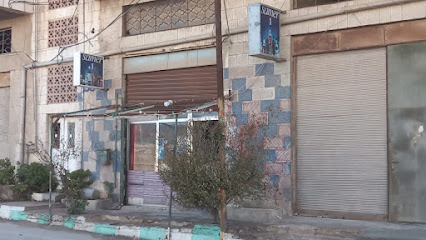
Samer 1
Discover the charm of Kerak at Samer 1, where local drinks meet a cozy ambiance in a historic town.
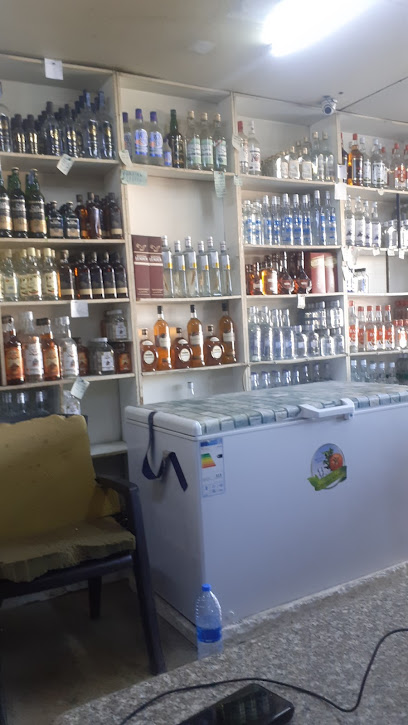
جميعه الغوير الخيرية
Discover the heart of Al-Karak at Al-Ghawir Charity Lounge, where community spirit meets local tradition in a cozy atmosphere.
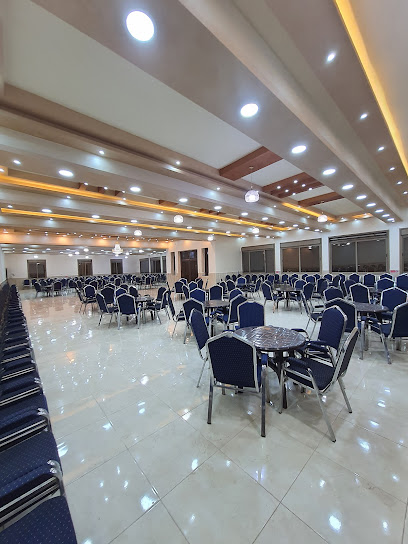
Local Phrases
-
- HelloMarhaba
[mar-ha-ba] - GoodbyeMa'a as-salama
[ma-a as-sa-la-ma] - YesNa'am
[na-am] - NoLa
[la] - Please/You're welcomeMin fadlak
[min fad-lak] - Thank youShukran
[shuk-ran] - Excuse me/SorryAfsos
[af-sos] - How are you?Kif halak?
[keef ha-lak] - Fine. And you?Mni7. Winta?
[mnee-ha. win-ta] - Do you speak English?Bititkalam inglizi?
[bi-teet-ka-lam in-glee-zi] - I don't understandMaba fahim
[ma-ba fa-heem]
- HelloMarhaba
-
- I'd like to see the menu, pleaseBiddi ara al-qayim min fadlak
[bid-dee a-ra al-ka-yim min fad-lak] - I don't eat meatMaba akol lahm
[ma-ba a-kol lahm] - Cheers!Sahtain
[sah-tayn] - I would like to pay, pleaseBiddi adfa', min fadlak
[bid-dee ad-fa, min fad-lak]
- I'd like to see the menu, pleaseBiddi ara al-qayim min fadlak
-
- Help!Musa'ada!
[mu-sa-a-da] - Go away!Iz3al!
[iz-aal] - Call the Police!Id3o al-bulisia!
[id-a-o al-bu-lee-si-a] - Call a doctor!Id3o tabib!
[id-a-o ta-beeb] - I'm lostGha'it
[gha-it] - I'm illAna mareed
[a-na ma-reed]
- Help!Musa'ada!
-
- I'd like to buy...Biddi ashri...
[bid-dee ash-ree] - I'm just lookingAna bas bi-tshuf
[a-na bas bi-tshoof] - How much is it?Kam haza?
[kam ha-za] - That's too expensiveHaza ghali jiddan
[ha-za ghah-lee jid-dan] - Can you lower the price?Mumkin takhaff el-sar?
[mum-keen tak-haff el-sar]
- I'd like to buy...Biddi ashri...
-
- What time is it?Kam el-sa'a?
[kam el-sa-a] - It's one o'clockHua al-wahid
[hwa al-wa-heed] - Half past (10)Nos sa3a (10)
[nos sa-a (10)] - MorningSaba7
[sa-ba-ha] - AfternoonDuhur
[du-hur] - EveningMasa'
[ma-sa] - YesterdayAms
[am-s] - TodayAl-yawm
[al-yawm] - TomorrowGhadan
[gha-dan] - 1Wahid
[wa-heed] - 2Itnayn
[it-nayn] - 3Thalatha
[tha-la-tha] - 4Arba'a
[ar-ba-a] - 5Khamsa
[kham-sa] - 6Sitta
[sit-ta] - 7Sab3a
[sab-a] - 8Thamanya
[tha-man-ya] - 9Tis3a
[tis-a] - 10Ashara
[a-sha-ra]
- What time is it?Kam el-sa'a?
-
- Where's a/the...?Wayn al...?
[wayn al] - What's the address?Shu el-3enwan?
[shoo el-an-wan] - Can you show me (on the map)?Mumkin ti3ini (3ala al-kharita)?
[mum-keen tee-a-nee (a-la al-kha-ree-ta)] - When's the next (bus)?Emta al-bus al-tali?
[em-ta al-bus al-ta-lee] - A ticket (to ....)Takket (ila ....)
[tak-ket (il-la)]
- Where's a/the...?Wayn al...?
History of Kerak
-
Kerak, known historically as Characmoba, has roots that trace back to the Iron Age. It was a prominent city within the ancient kingdom of Moab, mentioned in biblical texts. The city's strategic location on the King's Highway made it an important center for trade and military activity.
-
During the Byzantine era, Kerak continued to flourish as a key city in the region. It became a bishopric and saw the construction of several churches. With the advent of Islam in the 7th century, Kerak was incorporated into the expanding Islamic caliphates, and its strategic importance remained undiminished.
-
One of the most defining periods in Kerak's history came during the Crusades. In 1142, Pagan the Butler, a Crusader lord, began the construction of the formidable Kerak Castle. This fortress, perched on a hilltop, became a crucial stronghold for the Crusaders and played a significant role in their military campaigns in the region.
-
The Siege of Kerak in 1183 is one of the most dramatic episodes in the city’s history. Saladin, the Sultan of Egypt and Syria, laid siege to the castle in an attempt to capture it from the Crusaders. Despite the intense assault, the fortress withstood the siege, showcasing its formidable defenses. Eventually, however, the castle fell to Saladin in 1188.
-
Following the Crusader period, Kerak became part of the Mamluk Sultanate in the 13th century. The Mamluks reinforced the castle and used it as a strategic military outpost. Later, in the 16th century, Kerak came under Ottoman control. The Ottomans maintained the castle's military significance, and it continued to serve as a garrison and administrative center.
-
In the 19th and 20th centuries, Kerak saw gradual modernization while retaining its historical charm. The town expanded around the ancient fortress, and today, Kerak Castle stands as a testament to the city's rich and tumultuous history. Efforts have been made to preserve the castle and other historical sites, making Kerak a vital destination for those interested in Jordan’s historical and cultural heritage.
Kerak Essentials
-
Kerak is located approximately 140 kilometers south of Amman, Jordan's capital. The nearest major airport is Queen Alia International Airport in Amman. From the airport, you can hire a taxi or rent a car to reach Kerak. The journey by car takes around 2 to 3 hours. Alternatively, you can take a bus from Amman's South Bus Station to Kerak; buses run several times a day and are an economical choice.
-
Kerak is a small city, and many of its attractions, including the famous Kerak Castle, are within walking distance. Taxis are available and can be hailed from the street or booked through hotel receptions. Public buses and minibuses (known locally as 'servees') connect Kerak with nearby towns and cities. Renting a car is also an option for those who prefer to explore at their own pace.
-
The official currency in Jordan is the Jordanian Dinar (JOD). Credit cards are widely accepted in hotels, restaurants, and larger shops in Kerak. However, it is advisable to carry cash for small purchases and in more rural areas. ATMs are available in Kerak, but it is a good idea to withdraw sufficient cash before leaving larger cities like Amman.
-
Kerak is generally a safe destination for tourists. However, it is recommended to take standard precautions, such as not walking alone at night in unfamiliar areas and keeping an eye on your belongings in crowded places. There are no specific high-crime areas targeting tourists in Kerak, but staying vigilant and aware of your surroundings is always wise.
-
In case of emergency, dial 911 for immediate assistance. Kerak has a local police station and medical facilities. It is advisable to have travel insurance that covers medical emergencies. For minor health issues, pharmacies in Kerak offer over-the-counter medications.
-
Fashion: Do dress modestly, especially when visiting religious sites. Avoid wearing revealing clothing. Religion: Do respect local customs and traditions. Always remove your shoes and cover your head when entering mosques. Public Transport: Do be respectful and give up your seat to elderly passengers. Don’t eat or drink on public transport. Greetings: Do greet people with a handshake. A slight nod is also a sign of respect. Eating & Drinking: Do try local delicacies and accept food offerings graciously. Don’t refuse hospitality, as it is considered impolite.
-
To experience Kerak like a local, visit the local souk (market) where you can buy fresh produce and traditional Jordanian goods. Engage with locals, as they are often friendly and willing to share stories about the city’s history and culture. Don’t miss visiting Kerak Castle, a significant historical site. For a unique experience, try the local cuisine at family-run restaurants. Also, consider attending local festivals or cultural events if your visit coincides with one.
Nearby Cities to Kerak
-
Things To Do in Masada
-
Things To Do in Tafilah
-
Things To Do in Ein Gedi
-
Things To Do in Dead Sea
-
Things To Do in Dana
-
Things To Do in Madaba
-
Things To Do in Bethlehem
-
Things To Do in Jerusalem
-
Things To Do in Beersheba
-
Things To Do in Amman
-
Things To Do in Salt
-
Things To Do in Petra
-
Things To Do in Modi'in
-
Things To Do in Ma'an
-
Things To Do in Ashdod








